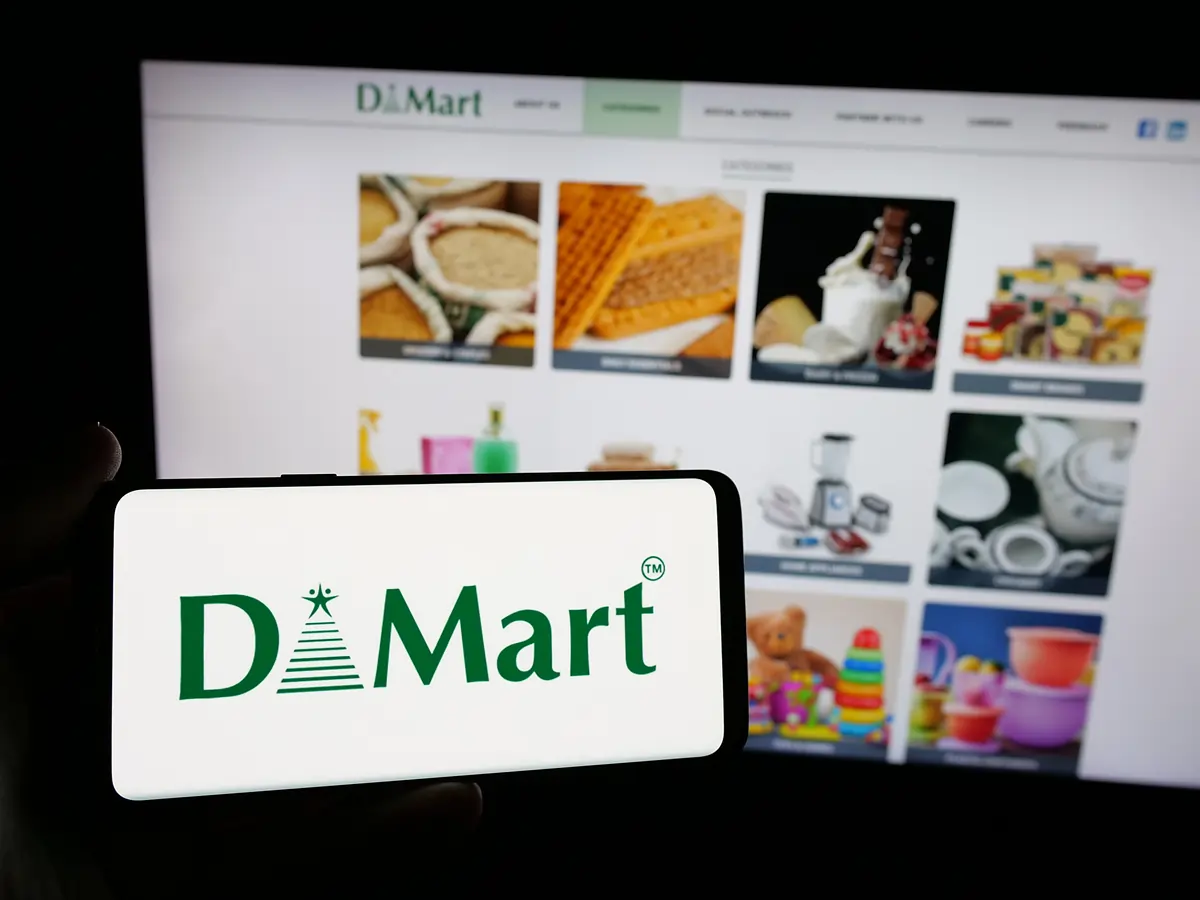Market News
Avenue Supermarts shares jump over 8.5% in 2 sessions; what investors need to know

5 min read | Updated on July 31, 2025, 12:45 IST
SUMMARY
Avenue Supermarts share price: In its annual investor conference, the company said the new CEO (w.e.f. Feb 2026, Anshul Asawa) will focus on core retail operations, and Neville Noronha (outgoing CEO) on expansion. Besides, Avenue Supermarts shared key business updates that are encouraging.
Stock list

Data show that the stock has rallied as much as 8.69% in two sessions. | Image: Shutterstock
While the company's June quarter (Q1 FY26) earnings did not elicit any fireworks, it is the company's growth plan and strategies shared during the Annual Investor Conference-2025 that have investors euphoric.
Data show that the stock has rallied as much as 8.69% in two sessions (from Tuesday's closing level to today's, i.e., Thursday, July 31, 2025, intraday high of ₹4,346.80 on the NSE.)
Further, the stock has gained around 7% in the past five days, data show.
In its conference, the company said the new CEO (w.e.f. Feb 2026, Anshul Asawa) will focus on core retail operations, and Neville Noronha (outgoing CEO) on expansion.
Besides, Avenue Supermarts shared key business updates that are encouraging. Here is the list.
Store expansion in North cluster
The company said it sees North India as a white space for growth.
In business, white space generally refers to unoccupied areas within a market or customer base where there is potential for growth.
The company said the management is doubling down in the region, given the customer density and replicability of the model. DMART has acquired some real estate in Uttar Pradesh, and in the next six to eight months, store additions in North are a key priority.
"DMART expects store additions to remain at nearly 50/year, as rapid store expansion could potentially dilute return ratios and drive operating inefficiencies. In real estate, DMART favours the owned model due to a lack of long leases, which allows business continuity. Management is comfortable with increasing debt (to some extent) when presented with attractive real estate opportunities," Elara Capital notes in its report.
DMart Ready—A challenge for quick commerce firms?
DMART has consciously stayed away from the <one-hour delivery race. At present, around 60% of the orders are fulfilled within 12 hours, while nearly 11% are within three hours, and 100% within 24 hours. DMart Ready aims for all order delivery within six hours and aims to create a reliable, cost-efficient value channel with PBT profitable operations.
Management views aggressive expansion and higher store density as ways to drive value. Appealing to customers is the key to competing with quick commerce.
Per DMART, quick commerce has scaled up due to infra-related issues and rental arbitrage. DMart Ready is focused on building a fulfilment centre-led backend rather than leveraging store inventory to preserve store productivity.
As per DMART, quick commerce has not dented operations in non-metro markets. On pricing, DMart Ready prices may remain high versus stores given associated home delivery costs.
Karan Taurani, an analyst with Elara Capital, said, "We believe a focused expansion of six-hour delivery may partly challenge quick commerce (to gain value customers from the platform)."
What DMart said on private label
DMART views private labels as a long-term margin expansion lever and follows a "20-20-20" principle to foray into private labels (20% category share, 20% lower price than branded items, and 20% higher margin). "DMART believes in scaling in penetrated categories rather than creating newer ones, and categories must be well-established, with strong consumer demand and scope for value disruption," the Elara Capital note read.
A private label (also called a store brand, house brand, or own label) refers to products that are manufactured by one company but sold under a retailer’s brand name.
With steadier expansion in Brick and Mortar (B&M), which means a physical retail location (due to owning land), scaling via DMart Ready for the company in metro markets may arrest the growth slide, note analysts.
"DMart seems focused as regards the North cluster, and expansion opportunities are robust therein. Fulfilment-focused six-hour delivery may meaningfully attract growth given the wider gap between next-day delivery and 10-minute delivery at present. However, stores in metros may continue to be challenged as top-up purchases are shifting to QC, impacting like-for-like (LFL) growth," Elara Capital opines.
Avenue Supermarts Q1 FY26 Results
Avenue Supermarts reported a marginal decline in consolidated net profit to ₹772.81 crore in the first quarter ended June 30, 2025 (Q1 FY26), impacted by higher expenses.
The DMart chain operator had posted a consolidated net profit of ₹773.68 crore in the April-June quarter last fiscal.
Consolidated revenue from operations in the first quarter stood at ₹16,359.7 crore against ₹14,069.14 crore in the year-ago period.
Total expenses in the first quarter were higher at ₹15,321.66 crore compared to ₹13,056.61 crore in the corresponding period last fiscal year.
Commenting on the company's performance, Neville Noronha, CEO & Managing Director, Avenue Supermarts Limited, said, “The revenue growth impact of approximately 100-150 bps was primarily due to high deflation in many staples and non-food products. Gross margins are lower as compared to the same period in the previous year, due to continued competitive intensity within the FMCG space."
The CEO added, "Operating costs are higher due to our efforts on improving service levels, capacity building, and inflation at entry-level wages."
About The Author
Next Story

